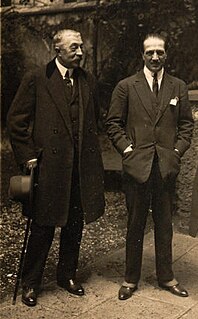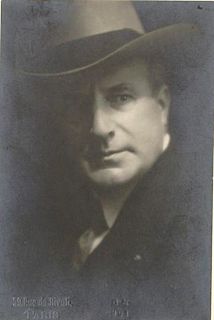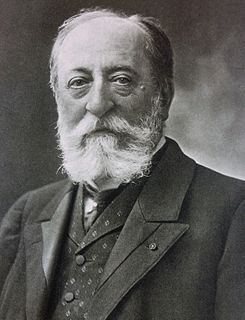Related Research Articles

The duke of Brabant was the ruler of the Duchy of Brabant since 1183/1184. The title was created by the Holy Roman Emperor Frederick Barbarossa in favor of Henry I of the House of Reginar, son of Godfrey III of Leuven. The Duchy of Brabant was a feudal elevation of the existing title of landgrave of Brabant. This was an Imperial fief which was assigned to Count Henry III of Leuven shortly after the death of the preceding count of Brabant, Herman II of Lotharingia. Although the corresponding county was quite small its name was applied to the entire country under control of the dukes from the 13th century on. In 1190, after the death of Godfrey III, Henry I also became duke of Lotharingia. Formerly Lower Lotharingia, this title was now practically without territorial authority, but was borne by the later dukes of Brabant as an honorific title.

Princess Elisabeth, Duchess of Brabant is the heir apparent to the Belgian throne. The eldest child of King Philippe and Queen Mathilde, she acquired her position after her grandfather King Albert II abdicated in favour of her father on 21 July 2013.

Pierre Eugène Onfroy de Bréville was a French composer.

Sigurd is an opera in four acts and nine scenes by the French composer Ernest Reyer on a libretto by Camille du Locle and Alfred Blau. Like Wagner's Ring of the Nibelung, the story is based on the Nibelungenlied and the Eddas, with some crucial differences from the better known Wagnerian version. The whole opera can best be described as an epic with techniques of the grand opera.
Philippe Boesmans was a Belgian composer.

Jean-Antoine de Mesmes, comte d'Avaux (1661–1723) was a premier president of the Parlement of Paris and member of the Académie française. As premier president he presided at the rescinding of the will of Louis XIV and in 1720 at the remonstrance against the regent, Philippe of Orléans, for allowing Law's disastrous financial scheme and appointing Guillaume Dubois as archbishop of Cambrai.
Jean-Louis Comolli is a French writer, editor, and film director. He was editor in chief of Cahiers du cinéma from 1966 to 1978, during which period he wrote the influential essays "Machines of the Visible" (1971) and "Technique and Ideology: Camera, Perspective, Depth of Field" (1971-2), both of which have been translated in English anthologies of film and media studies. This work was important in the discussion on apparatus theory, an attempt to rethink cinema as a site for the production and maintenance of dominant state ideology in the wake of May 1968.

Mécène Marié de l'Isle was a French musician and opera singer, who used the stage name Marié.
Hippolyte-Adolphe Belhomme, was a prominent French bass or bass-baritone and long-term member of the Opéra-Comique company in Paris. He also made some important early opera recordings, displaying on them a lyrical voice of great flexibility.

Michel Trempont was a Belgian operatic baritone whose repertoire extended from the 18th century to the creation of contemporary works. His brother was Pol Trempont (1923–2007), operatic tenor and one time director of the Théâtre de Mons.
Éros vainqueur is an opera or conte lyrique in 3 acts and 4 scenes by composer Pierre de Bréville. The work uses a French language libretto by the poet and novelist Jean Lorrain and was dedicated by Bréville to composer Vincent d'Indy.
The Devriès family were operatic singers over three generations, of Dutch descent. They were mainly active in France, Belgium and the USA in the second half of the 19th and the early 20th centuries.

Marie Ismaël-Garcin, was a French opera singer who specialised in light soprano roles and sang leading roles in several French opera houses during the 1880s. She was married to the French baritone, Jean-Vital Jammes.

Henri Albers, born Johan Hendrik Albers, was a Dutch-born opera singer who later became a French citizen. He sang leading baritone roles in an international career that spanned 37 years and was a prominent singer at the Théâtre de la Monnaie in Brussels and the Opéra-Comique in Paris, which was his base from 1900 until his death. He also sang in 36 performances with the Metropolitan Opera company from 1898 to 1899. He made many recordings for Pathé Records and specialised in the heavier baritone and basso cantante repertoire.
Cheyenne Carron, is a French film director, screenwriter, and producer.

Claude Wolf, called Bernard was a 19th-century French actor, singer, playwright and theatre manager.

L'ancêtre is a 1905 drame lyrique in 3 acts by Camille Saint-Saëns to a libretto by Lucien Augé de Lassus (1841-1914).

Stéphane Degout (born 9 June 1975 in Bourg-en-Bresse, is a contemporary French baritone. He grew up in Saint-Jean-de-Niost, and has been living in Lyon since 1995.
Gérard Condé is a French composer and music critic.

Jean-Baptiste-Sauveur Gavaudan was French opera singer who sang leading tenor roles, primarily with the Opéra Comique in Paris. He was particularly known for his skill as an actor and was sometimes referred to as "the Talma of the Opéra Comique". He also served as the director of the Théâtre Royal de la Monnaie in Brussels for the 1817–1818 season. Born in Salon-de-Provence, he made his stage debut in 1791 at the Théâtre Montansier. Gavaudan was married to the soprano Alexandrine Marie Agathe Gavaudan-Ducamel from 1798 until his death in Paris at the age of 67.